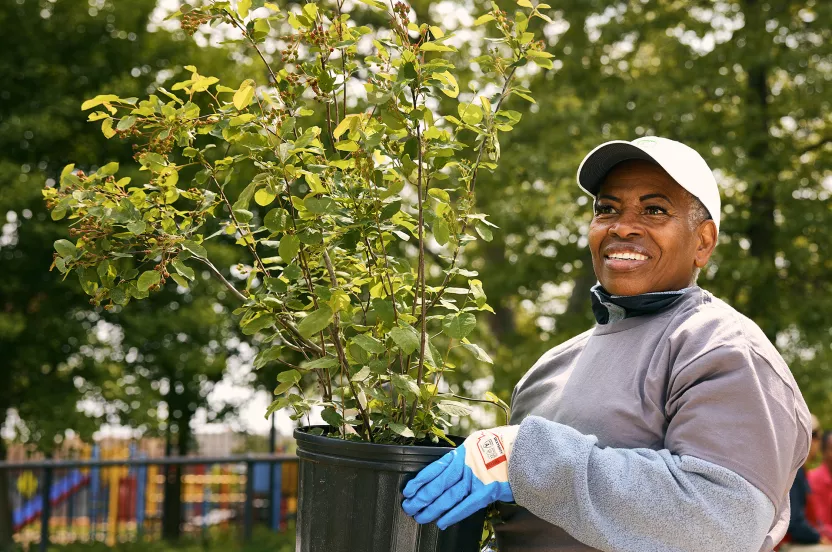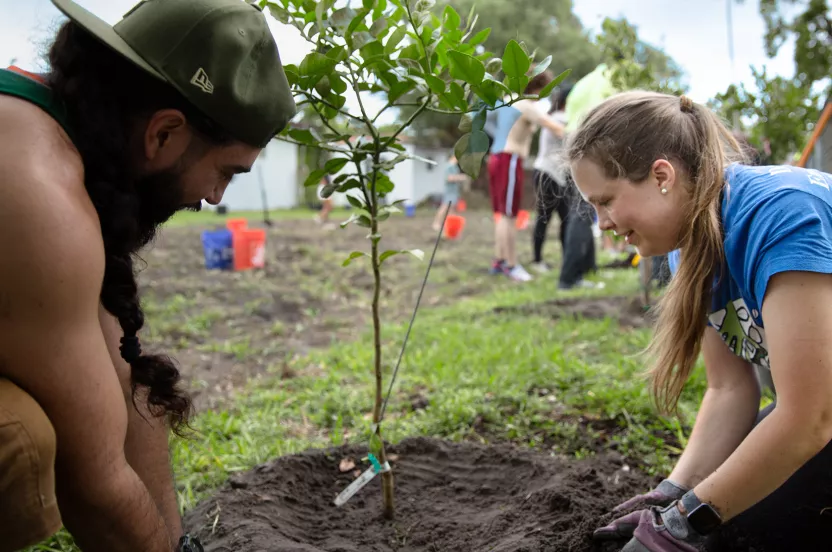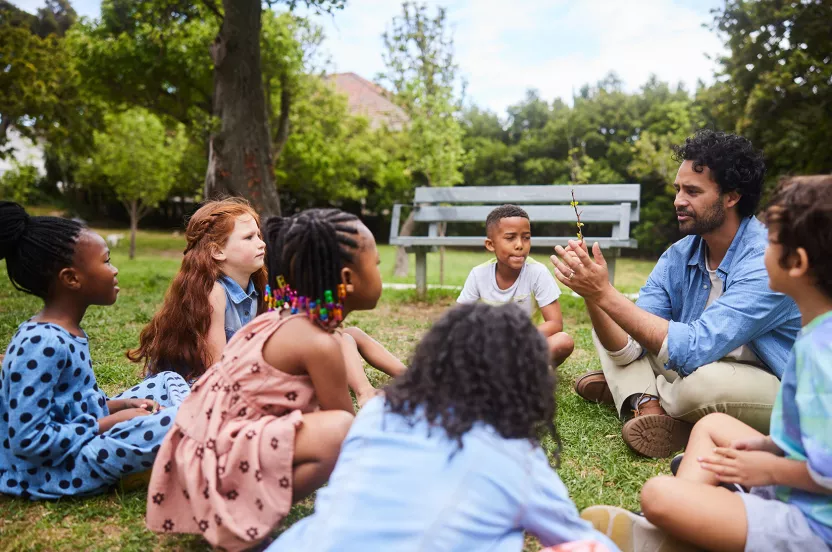Give before midnight on July 31 to double your impact where trees need us most. CHOOSE A PROJECT
Trees in Communities
Tree City USA
Cultivate civic pride by committing to a community that’s healthier, happier, and more livable, and earn national recognition as a Tree City USA.

Growing communities
Tree City USA is an annual national recognition program designed to raise awareness of the value of community trees, set foundational standards for communities of all sizes, and celebrate community improvement.
Since 1976, the Arbor Day Foundation’s Tree City USA program has recognized communities of all sizes, from Sibley, North Dakota to New York City. Tree City USA national recognition helps communities demonstrate and promote their commitment to a greener place to call home.
3,587
Recognized Tree Cities
991K+
Trees planted annually
$2B+
Invested in trees this year
48%
Of the U.S. lives in a Tree City
Put your community on the map
We started with 42 communities in 16 states. Nearly half a century later, Tree City USA partners can be found in all 50 states, making an enormous impact across America.
Explore the map to find communities that share your commitment to trees.
Our Standards
Overview
Leadership in Action
Commitment requires accountability. We’ve crafted our four standards to be inclusive of communities of all sizes while ensuring consistency across the program. To be recognized as a Tree City USA, communities must apply annually with activities occurring between January 1 and December 31 that meet or exceed the four standards.
Standard 1: A Tree Board or Department
Communities must identify who is responsible for managing public trees. The responsibility for community trees could be held or shared by a community tree board, a department, or position like an arborist, forester or other community employee. Identifying who is responsible for community trees ensures accountability, consistency, and clarity in tree maintenance decisions for public trees.
Standard 2: A Public Tree Care Ordinance
Ordinances guide communities in the establishment, conservation, protection and maintenance of community trees and forests. Codified and enforced ordinances help communities maximize the benefits of community trees, creating more livable communities.
Standard 3: Annual Expenditure of $2 Per Capita on Community Tree Care Activities
Trees are an investment in the health, comfort, and livability of a community. That’s why Tree City USA communities allocate a minimum of $2 per capita towards community forestry, helping to cover expenses around planting and maintaining trees. See Qualified Expenses to explore the eligible expenditures.
Standard 4: An Arbor Day Observance and Proclamation
Communities have been celebrating Arbor Day since 1872! Recognized Tree City USA communities take part in the celebration through official proclamations and events highlighting the value of trees. The events help bring visibility to the importance of tree management efforts and can be used to honor dedicated volunteers or civil servants. Arbor Day can be observed at any time during the year of recognition and can be part of an Earth Day event or other community event as long as trees play a central role in the celebration.
Getting Started
When it comes to committing your community to trees, there’s no time to waste. But we’re here to help with these resources:
State Urban Forestry Coordinators
Find your state urban forestry coordinator to start the conversation.
Shop Tree City USA
Already a partner? Share your pride with flags, shirts, magnets, and more.
Arbor Day proclamation
Download sample language for your city or town’s Arbor Day proclamation.
Sample ordinances
Find examples of municipal tree ordinances for cities with and without tree boards.
Qualified expenses
See expenses that can be counted to meet standard three for an annual tree care budget.
Application checklist
Reference a handy list of everything your municipality needs to apply for recognition.
State deadlines
Each state has a deadline for completing your annual Tree City USA application. View your state’s deadline to ensure you complete the application on time.
Recognized Tree City USA Communities
Explore nationally recognized communities in your state and throughout the country.
Why join?
The Pride of the City
People love to live in a city that takes pride in itself. Here’s what becoming a Tree City USA community can mean for the place you call home:
A foundation for the future
Putting our four standards in place now sets your city up to be an environmental leader tomorrow. Becoming a Tree City creates a legacy for your community.
A network of support
Recognition means joining a nationwide network of leaders like you, where you can get advice, support, and ideas.
A community that cares
Involving and educating citizens on the importance of trees gives them an opportunity to come together for planting and maintenance, and make trees a community effort.
Hear from Leaders Like You
Tree City USA Partners
Tree City USA is an Arbor Day Foundation Program in cooperation with the USDA Forest Service and the National Association of State Foresters.
Apply today
Let’s Dig In
Your first step towards becoming a Tree City starts here. Fill out the application and you’ll be on your way to being a nationally recognized conservation leader.
Sign up
Stay Informed
Our Community Forestry Connection newsletter keeps you up to date on programs, best practices, and opportunities for conservation leadership.




